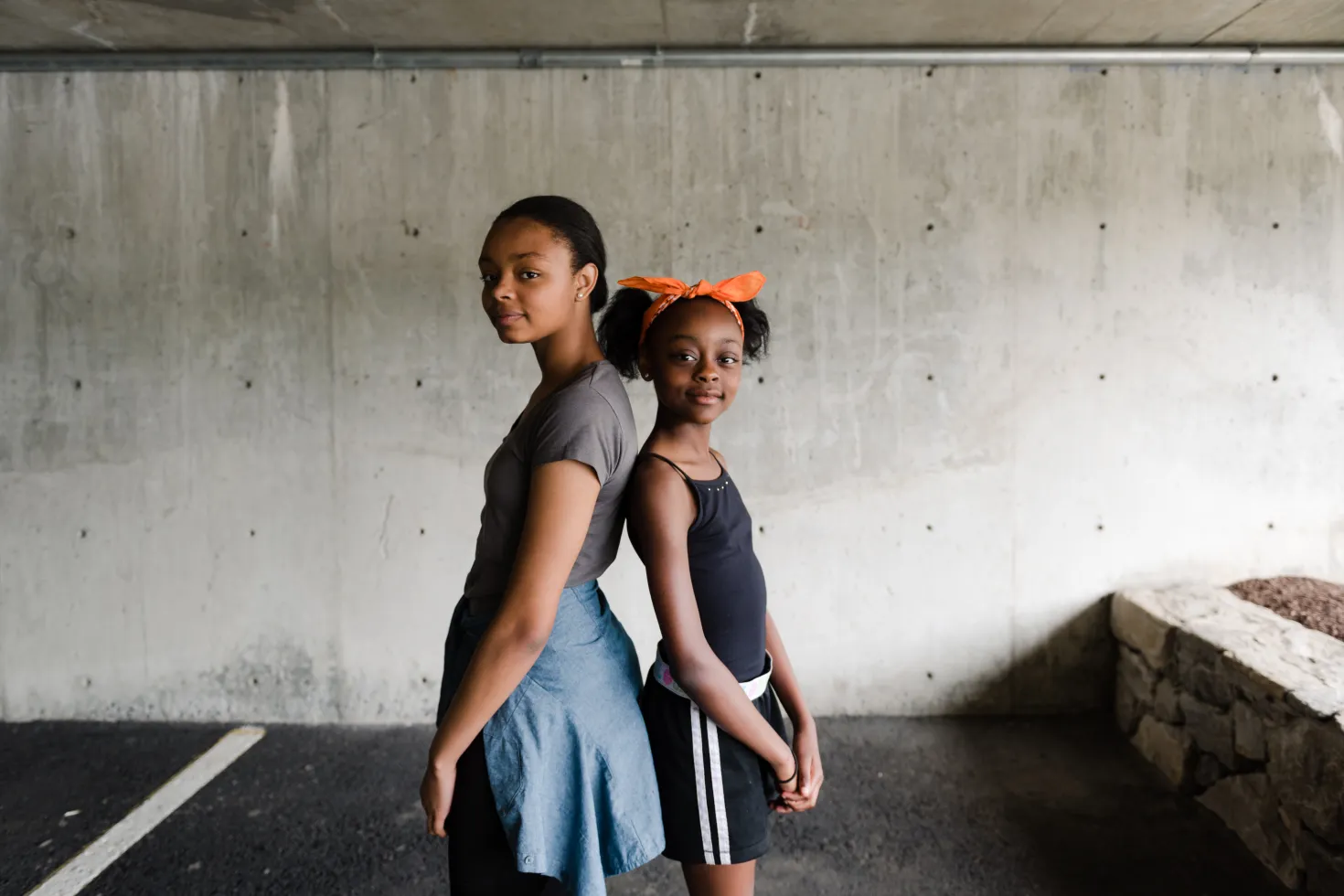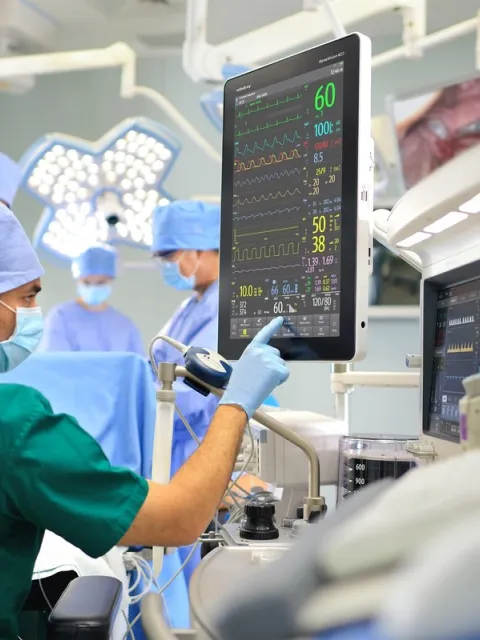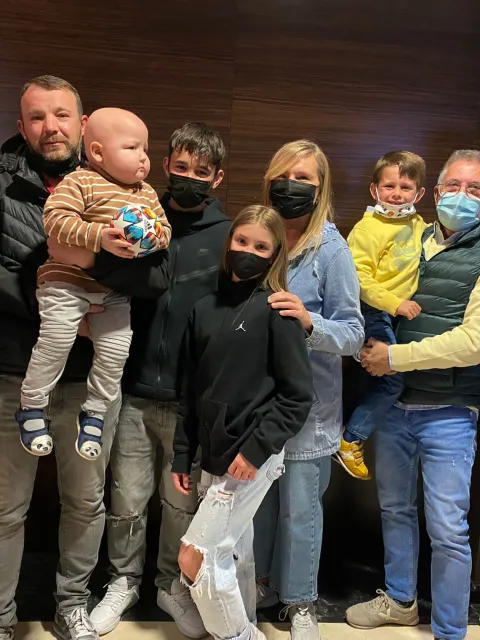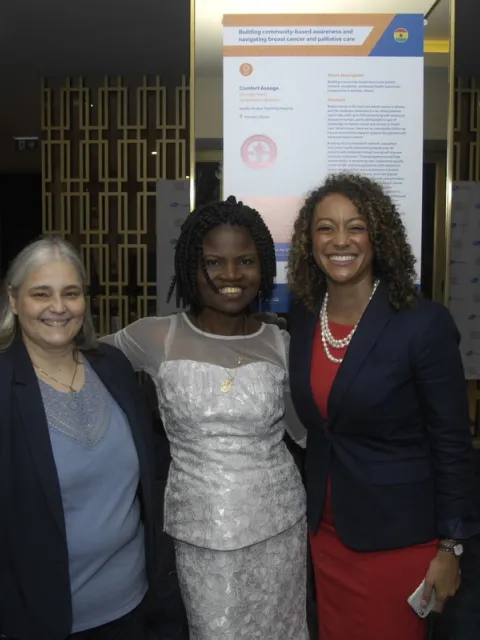Project grants in HPV vaccination
As part of its work on cervical cancer, UICC is launching a grants opportunity to support high-impact CSO-led projects at the national level driving progress in the introduction and scale-up of HPV vaccination.

Background and context
HPV vaccination has the potential to prevent more than 90% of HPV-attributable cancers, including cervical cancer. This primary prevention intervention represents one of the most effective interventions for addressing cervical cancer, particularly for women in low- and middle-income countries (LMICs), which still bear 90% of cervical cancer deaths globally. In December 2022, the WHO Strategic Advisory Group of Experts on Immunization (SAGE) recommended a single-dose schedule for HPV vaccination, representing a further opportunity to overcome many challenges in increasing access and coverage for the vaccine in many settings.
Although there has been a renewed momentum to accelerate access to primary prevention through HPV vaccination programmes, in particular building on Gavi’s revitalisation of their HPV programme with the objective to reach 86 million adolescent girls by 2025, and more recently with the first Global Cervical Cancer Elimination Forum, access to HPV vaccination remains limited in LMICs.
In 2023, UICC conducted a landscaping report to generate knowledge about current and potential engagement for civil society organisations (CSOs) to act towards access to HPV vaccination. The report highlighted three areas where support would be particularly required: resources for implementation, communication for public education and knowledge for advocacy.
Projects awarded
Based on the needs identified in the context of the landscaping report, UICC launched this grants opportunity to support high-impact CSO-led projects at the national level enabling organisations to advocate, raise awareness and mobilise communities for HPV vaccination.
| Organisation | Country | Full Name | Project title |
|---|---|---|---|
| African Palliative Care Association | Uganda | Eve Namisango | Increasing access to HPV vaccination and cancer awareness for girls and young women in informal caregiving for palliative care patients |
| Asociación Salvadoreña para la Prevención del Cáncer | El Salvador | Lisseth Guadalupe Ruiz de Campos | Health and future: Strengthening HPV Vaccination in El Salvador |
| Cameroon Baptist Convention Health Services | Cameroon | Ngalla Calvin | Church-based-approach: A strategy to improve HPV vaccination in regions hit by socio-political crises in Cameroon |
| Cancer Institute (WIA), India | India | Vani Nandimandalam Venkata | Vaccinate for the future: Identifying barriers, assessing readiness and co-creating sustainable solutions for HPV vaccine implementation |
| Global Medical Knowledge Alliance | United States / Ukraine | Nelya Melnitchouk | Promotion of HPV vaccination in Ukraine |
| Kenyan Network of Cancer Organizations | Kenya | Charles Muya | Towards elimination of cervical cancer in Kenya: Promoting sustained availability and uptake of HPV vaccine through a multi-level creation of awareness and advocacy in informal settlements in Nairobi |
| National Cancer Council of Mongolia | Mongolia | Tsetsegsaikhan Batmunkh | Effective strategies for increasing HPV vaccination uptake in rural Mongolia |
| National Health Laboratory Service | South Africa | Mazvita Muchengeti | Building the capacity of community health workers in Eastern Cape and Kwa-Zulu Natal to implement integrated sexual reproductive health training with a focus on HPV/cervical cancer elimination |
| Philippine Cancer Society, Inc. | Philippines | Herdee Gloriane Luna | ACT NOW Plus: A 360° digital patient education and navigation program incorporating HPV vaccination advocacy for girls ages 9-14 |
| Universiti Malaya | Malaysia | Hamizah Sa'at | HOPE: Health outreach for cervical cancer elimination in the indigenous Orang Asli communities of Perak |
Review Committee
- Chair: Cathy Ndiaye, Senegal, Director of HPV Vaccine Programs, PATH
- Mary Adeoye, Switzerland, HPV Programme Manager, Gavi
- Anu Agrawal, USA, Vice President, Global Cancer Support, American Cancer Society
- Rose Anorlu, Nigeria, FIGO Committee on Women’s Cancers, Nigeria
- Paul Bloem, Switzerland, Senior Technical Officer at World Health Organization
- Jen Donofrio, USA, Senior Program Officer, Bill and Melinda Gates Foundation
- Mary Eiken, USA, CEO, International Gynecologic Cancer Society
- Somesh Kumar, India, Senior Director, Technical Leadership and Innovation, Jhpiego
- Diep Nguyen, Australia, Research Fellow at the Daffodil Centre
- Margaret Stanley, UK, IPVS Past President, Professor, Cambridge University
- Nayab Waheed, Belgium, Project Lead CHIC, University of Antwerp
- Heather White, USA, Executive Director, TogetHER for Health
- Alex Wright, UK, Global Lead, Cancer Research UK

UICC has a long history of building capacity for cancer organisations globally through grant making.
Grants

Following the Russian invasion of Ukraine, UICC set up a Solidarity Fund in response to its members’ requests to bridge funding into the region to support the needs of cancer organisations struggling to assist patients affected by the conflict.
Solidarity Fund to aid Ukrainian cancer patients

Metastatic Breast Cancer (MBC) accounts for 90% of breast cancer deaths. To tackle this growing cancer burden in 2015 UICC teamed up with Pfizer Oncology to launch the Seeding Progress and Resources for the Cancer Community (SPARC) MBC Challenge
Addressing Metastatic Breast Cancer (MBC)
Last update
Wednesday 18 February 2026